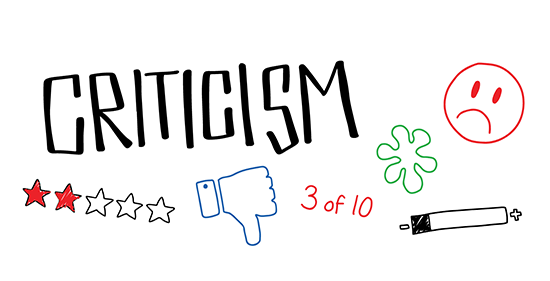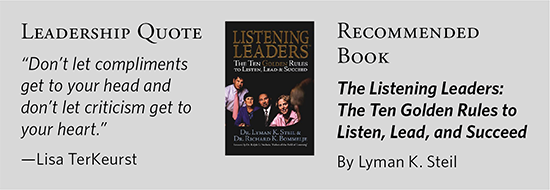
August-September 2018
Driving
Discipleship
Home
------------------
|






The column "Leadership Whiteboard" provides a short visual leadership coaching moment. It introduces and explains a new sketch in each issue, provides leadership coaching for further development, and shares a leadership quote and recommended book.
LAWS of Handling Criticism
Leaders should spend a great deal of time thinking through decisions, plans, and policies before implementation. Still, people sometimes surprise leaders with harsh words. Criticism feels like an attack. Two portions of the brain deal with attacks. One catalogues all previous emotional memories while the other determines optional responses, the “fight or flight” mechanism. The higher the level of a leader’s narcissism, the more likely he or she will dismiss criticism as false.

Inversely, leaders with lower self-esteem think the criticism is true. Leaders must ignore the flight impulse and control their fight mechanism to neither dismiss nor wallow in criticism. How do they do this? The LAWS of handling criticism help you navigate opposing ideas. What are the LAWS?
Listen. Don’t immediately start defending your position. Listen to the specifics of the criticism and repeat back those concerns before responding. Novice leadership begins formulating a response while the person is still voicing criticism without listening for truth in the complaint. Listening goes a long way with critics.
-
Ask questions. When critics voice concerns, ask them what if questions to help them see the issues from your perspective and evaluate the context or situation further. Questions also prevent premature responses.
-
Watch emotional responses. Don’t “marry” your ideas but “divorce” your emotions from the criticism. Don’t assume the attack is personal even if expressed that way. Improve ideas based on the criticism. Emotionally charged words from either side lose credibility. Calm carries the day.
-
Seek right. When hearing criticism, do not defend immediately. Pause and determine what is right, even if it resembles what your critics are saying. See criticism as a “rest area” to evaluate the “road map” of decisions. Seek right over being right.
None of the LAWS of criticism allows the person with the “spiritual gift” of criticism to hold you hostage. But when delivered by the occasional critic, identify criticism as an opportunity to improve your idea and your relationship with followers. Don’t dismiss criticism without applying the LAWS of listening, asking questions, watching your emotional responses, and seeking right.
About the Columnist:Ron Hunter Jr., Ph.D., is CEO of Randall House
Publications.

|
|

